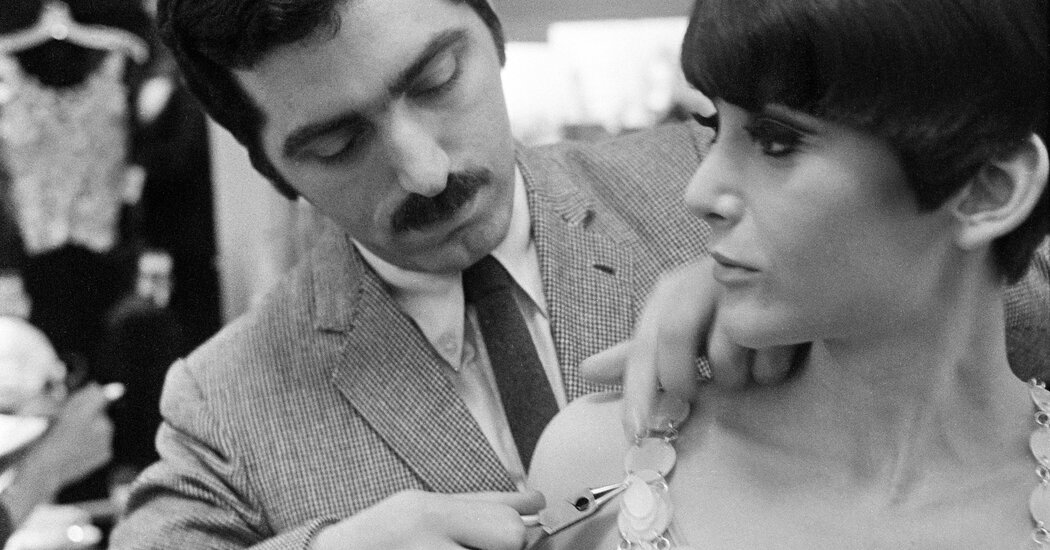The world of fashion has lost a true visionary. Paco Rabanne, the Spanish designer whose futuristic creations redefined couture, passed away on Friday at the age of 88. His death was confirmed by Puig, the luxury group that owns the brand. Rabanne’s career was a true moon shot, with his couture debut in 1966 shocking the French fashion world. His embrace of unconventional materials, such as plastic and metal, made his name resonate far beyond the salons of Avenue Montaigne and would go on to influence the work and business plans of generations of designers.
Rabanne was born Francisco Rabaneda y Cuervo in Pasajes, near San Sebastián, Spain in 1934. His mother, the head of tailoring for the designer Cristóbal Balenciaga, fled with her young son to France in 1939. Rabanne studied architecture at the École Nationale Supérieure des Beaux-Arts, but was attracted to fashion because it was less restrictive. His first collection, Manifesto: 12 Unwearable Dresses in Contemporary Materials, featured chain-link minidresses composed of hundreds of plastic and metal disks. Three years later he introduced his first perfume, called Calandre, which became the basis of a fragrance empire.
Rabanne’s experimentation and scent were the twin pillars on which his brand was built, inspiring generations of designers. He costumed Jane Fonda in the 1968 sci-fi film “Barbarella” and made chain mail into a fabric. He also explored some far-out beliefs, such as being visited by aliens and having numerous previous lives. Rabanne’s imaginative approach attracted the attention of filmmakers, and he was enlisted as a costume designer for movies, including Jean-Luc Godard’s “Two or Three Things I Know About Her” and William Klein’s “Who Are You, Polly Maggoo?”
His embrace of unconventional materials, however, would make his name, and his perfumes that would finance it. He continued to innovate, creating a collection of paper dresses held together by multicolored Scotch tape in 1967, the year The Times credited him with establishing “a new kind of awesome chic.” He later included Velcro, aluminum and fiberglass in his work. Coco Chanel dismissed him as “a metal worker,” but, he explained, “I wanted to turn women into modern warriors.”
Rabanne’s legacy will live on in the fashion world, inspiring generations of designers. His embrace of unconventional materials, experimentation, and scent will continue to influence the work of many. He was a true visionary, and his passing marks the end of an era.
Source: www.nytimes.com
